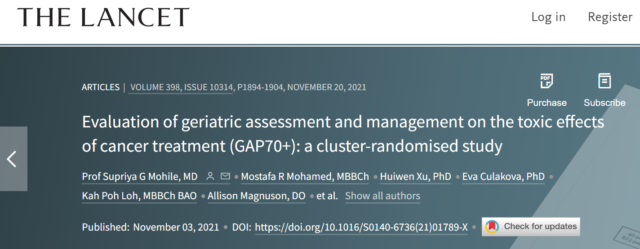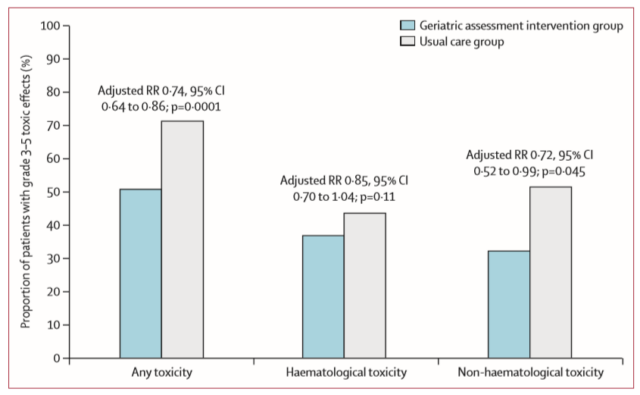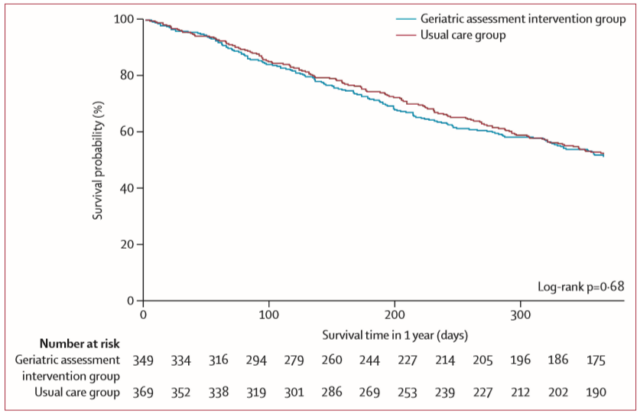Geriatric Oncology Breakthrough: Reduce toxic side effects by 20%
- Statins Lower Blood Lipids: How Long is a Course?
- Warning: Smartwatch Blood Sugar Measurement Deemed Dangerous
- Mifepristone: A Safe and Effective Abortion Option Amidst Controversy
- Asbestos Detected in Buildings Damaged in Ukraine: Analyzed by Japanese Company
- New Ocrevus Subcutaneous Injection Therapy Shows Promising Results in Multiple Sclerosis Treatmen
- Dutch Man Infected with COVID-19 for 613 Days Dies: Accumulating Over 50 Virus Mutations
Geriatric Oncology Breakthrough: Reduce toxic side effects by 20%
- Red Yeast Rice Scare Grips Japan: Over 114 Hospitalized and 5 Deaths
- Long COVID Brain Fog: Blood-Brain Barrier Damage and Persistent Inflammation
- FDA has mandated a top-level black box warning for all marketed CAR-T therapies
- Can people with high blood pressure eat peanuts?
- What is the difference between dopamine and dobutamine?
- How long can the patient live after heart stent surgery?
Geriatric Oncology Breakthrough: Reduce toxic side effects by 20%.
Geriatric Oncology Breakthrough! “The Lancet”: This assessment can reduce toxic side effects by 20%
With the intensification of population aging, the incidence of tumors in the elderly population is also increasing year by year.
A large number of previous studies have fully confirmed that there is a clear correlation between the physical disabilities and weakness of elderly patients and the poor prognosis of different types of cancer or different types of treatments (including treatment complications, side effects, and the risk of death).
However, the current routine oncology examinations do not fully evaluate the overall frailty of elderly patients.
“The Lancet” recently published a study from the Wilmot Cancer Institute team at the University of Rochester Medical Center.
The analysis results of a group randomized trial of 718 elderly patients (the trial name is GAP70+) showed that the treatment Geriatric evaluation (such as physical activity, multiple medications, coexisting diseases, functional status, nutrition, cognition, social support, and psychological status) beforehand can not only effectively influence clinical treatment decisions, but also help elderly patients manage other coexisting diseases .
Specifically, in this study, the elderly (70 years and older) cancer patients safely reduced the dose of therapeutic drugs (such as chemotherapy drugs) and reduced serious toxicity by 20% without affecting their overall survival. Risk of side effects!
The paper pointed out that this study “for the first time in a randomized controlled trial has confirmed that a treatment strategy based on gerontological evaluation can bring significant benefits to cancer patients in clinical practice.”

Screenshot source: The Lancet
The GAP70+ trial aims to identify the benefits of geriatric evaluation and corresponding management of the evaluation results in clinical practice for cancer patients in the American community.
The inclusion criteria of patients are: age 70 years and older; according to the assessment criteria, there are 1 or more gerontological treatment risks (specific items include patients’ physical activity, multiple medications, coexisting diseases, functional status, nutrition, cognition, social support, and psychological status ); Begin to receive palliative treatment with a higher risk of toxicity.
The patients included in the trial were assigned to the intervention group and the routine care group at a ratio of 1:1.
For patients in the intervention group, the researchers provided the summary information of the geriatric evaluation results and clinical management recommendations to the doctor in charge for treatment reference through the network platform.
The results of the analysis showed that: 718 patients were recruited in this trial. The average age of the patients was 77.2 years, and 43% of them were women.
According to the evaluation criteria in the study, patients have an average of 4.5 gerontological treatment risks.
In the first three months of treatment, the incidence of grade 3-5 toxic side effects of patients in the intervention group compared with patients in the conventional care group was significantly reduced, from 71% (263/369) to 51% (177/349).

▲The incidence of grade 3-5 toxic side effects of patients in the intervention group (blue) and routine care group (grey) 3 months before treatment (picture source: reference [1])
The researchers explained that this was mainly related to the adjustment of the initial medication dose. Compared with the conventional care group, more patients in the intervention group received relatively low-intensity chemotherapy drug combinations (p=0.011).
It is worth noting that there was no significant difference in overall survival rates between the two study groups at 6 months and 12 months.
This shows that a more “radical” treatment plan for elderly patients not only fails to effectively improve survival, but the occurrence of high-level adverse events also reduces their quality of life.

▲The overall survival of the two groups of patients was similar after treatment for 1 year (picture source: reference [1])
In addition, compared with the conventional care group, elderly patients in the intervention group had a 42% lower risk of falls in the first 3 months of treatment (aRR=0.58, 95% CI 0.40-0.84; p=0.035).
Falls and their sequelae, such as pain and fractures, will greatly affect the quality of life of patients. Therefore, reducing the risk of falls will directly benefit elderly patients.
The study authors emphasize that clinical oncologists usually treat patients in accordance with standard cancer treatment guidelines.
Although ASCO, the National Cancer and Aging Research Group (CARG) and other organizations have been strongly advocating and recommending individualized medical evaluation of elderly patients, the degree of popularity has little effect. And this latest research provides solid evidence.
The results of this study confirm that clinicians can have a more comprehensive understanding of patients through gerontological assessment, and observe the effects of therapeutic drugs on other clinical diseases (such as diabetes, etc.), physical function, possibility of falls, mental state, family and social support, etc. Influence.
In other words, elderly patients can safely receive more individualized treatment based on their medical history and different personal conditions.
A review article published in the same journal of The Lancet pointed out that 60% of cancers and 70% of cancer-related deaths occur in elderly patients, which shows the importance of conducting geriatric research in the field of oncology.
The current randomized controlled trial represents a huge leap in geriatrics in the field of tumor treatment, and strongly supports that geriatric evaluation should become the daily standard of clinical practice.
In addition, elderly cancer patients, especially those with severe comorbidities or other senile disorders, are most likely to receive treatment in community primary medical centers.
The evaluation and intervention strategies in the current study can also be widely implemented in these primary medical centers, and there is no need to invest a lot of extra time, so this study has very important significance!
Reference
[1] Mohile, Supriya G., et al. “Evaluation of geriatric assessment and management on the toxic effects of cancer treatment (GAP70+): a cluster-randomised study.” The Lancet (2021).
[2] Hamaker, Marije E., and Siri Rostoft. “Geriatric assessment in older patients with cancer: a new standard of care.” Lancet (London, England) (2021).
Geriatric Oncology Breakthrough: Reduce toxic side effects by 20%
(source:internet, reference only)
Disclaimer of medicaltrend.org
Important Note: The information provided is for informational purposes only and should not be considered as medical advice.



